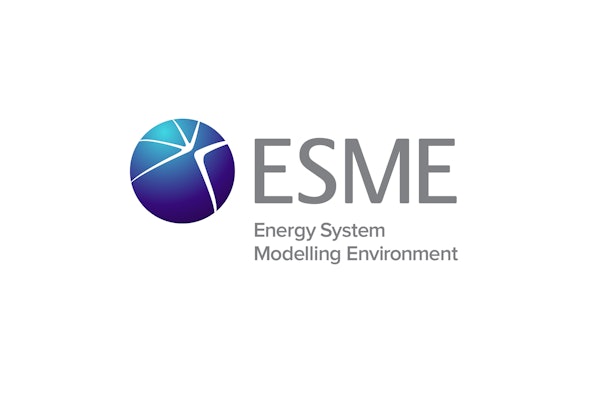ESME
The ETI’s internationally peer reviewed energy system modelling environment (ESME) - a national energy system design and planning capability helped to identify key areas for ETI investments and also underpins and informs UK Government energy policy. Now managed by the Energy Systems Catapult.
The UK’s energy environment is a complex set of needs, technologies and choices. Given the challenges, how do we prepare for the future?
The ETI’s internationally peer-reviewed Energy System Modelling Environment (ESME) helps answer some of those questions. It identifed key areas for ETI investment and also helps to underpin and inform UK Government energy policy.
With so many competing technology options, there was a need for accurate modelling tools to enable us to target investment at the right mix of low carbon solutions.
ESME was originally conceived for ETI’s own purposes to identify investment in technology innovation. Over time ESME has developed into a powerful energy system model for the UK. Increasingly the use of its outputs and insights has expanded into more strategic policy contexts.
ESME is used by ETI’s public and private sector members and the ESME software is also available to academics for use in research projects. It has been used to support work by the Committee on Climate Change (CCC) on carbon budgets and their renewable energy review, and by the Department for Business, Energy and Industrial Strategy to inform their Clean Growth Strategy.
ESME is a design tool rather than a forecasting tool: the central approach taken in ESME is a policy-neutral cost optimisation. The ESME optimisation finds the least- cost energy system designs which meet stipulated sustainability and security targets, whilst taking account of technology operation, peaks in energy demand and UK geography. The aim of the model is to examine the underlying cost and engineering challenges of designing energy systems. Therefore taxes, subsidies and other policies which affect the price of technologies or fuels are absent.
ESME is a Monte Carlo model which considers the uncertainty in this problem, particularly the uncertainty in future energy prices and the future cost and performance of energy technologies. This functionality allows the user to explore system-level responses to user-specified uncertainty in the future values of key assumptions.
Its ‘whole system’ scope includes all the major flows of energy: electricity generation, fuel production, heating and energy use in buildings, energy use in industry, and transportation of people and freight. Various technology choices are available in each of these sectors, such as alternative power stations, vehicle types or heater types. ESME performs a high-level cost optimisation that analyses different combinations of technologies in each sector and selects the combinations which together minimise the total cost while meeting specified targets and constraints.
ESME can help answer questions such as:
• What might be ‘no regret’ technology choices and pathways to 2050 targets?
• How might accelerating the development of a technology impact the solution?
• Where are the key constraints e.g. Energy resources, supply chains?
• What is the total system cost of meeting the energy targets?
• What are the key skills requirements for delivering and supporting the UK energy system?
ESME is now maintained and managed by the Energy Systems Catapult.
Further reading:
- ESME Data References Book
- Modelling Low-Carbon Energy System Designs with the ETI ESME Model – Report by Chris Heaton
- Modelling the UK energy system: practical insights for technology development and policy making – Report by George Day
- The uncertain but critical role of demand reduction in meeting long-term energy decarbonisation targets Energy Policy 73: 575-586 – S. Pye, W. Usher and N. Strachan (2014)
- An integrated systematic analysis of uncertainties in UK energy transition pathways. Energy Policy 87 :674-684 – S. Pye, N. Sabio and N. Strachan (2015)
- An Integrated Systematic Analysis of Uncertainties in UK Energy Transition Pathways. UKERC Working Paper – S. Pye, N. Sabio and N. Strachan (2014)
- Modelling sustainable urban travel in a whole systems energy model. Applied Energy 159: 97-107 – S. Pye and H. Daly (2015)
- The future role of natural gas in the UK. UKERC report – C. McGlade, S. Pye, J. Watson, M. Bradshaw and P. Ekins (2016)
- Regional winners and losers in future UK energy system transitions. Energy Strategy Reviews, 13-14: 11–31 – N.G. F. Li, S. Pye, and N. Strachan.
